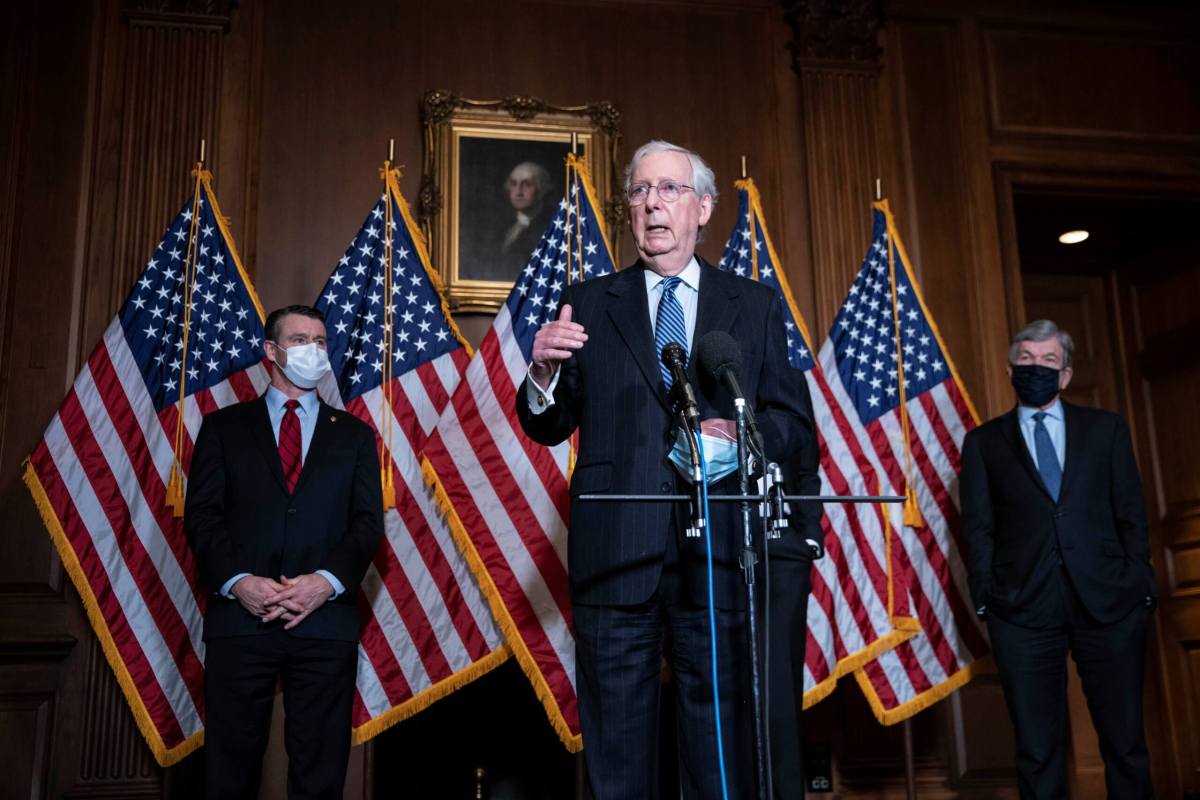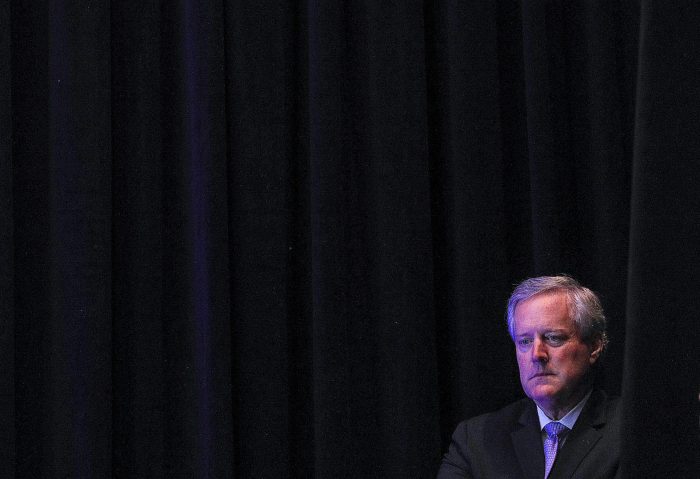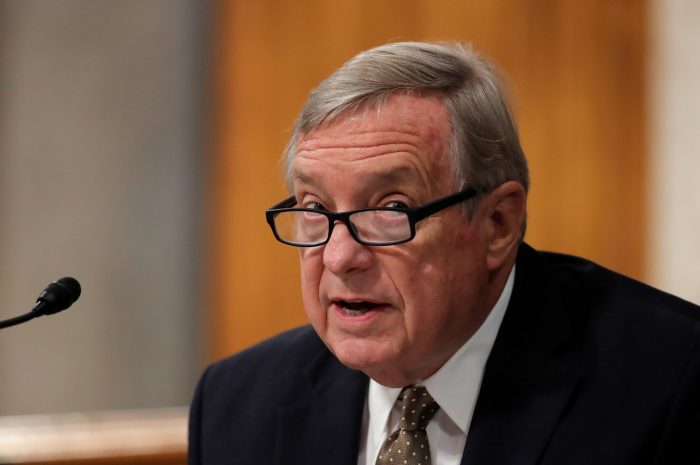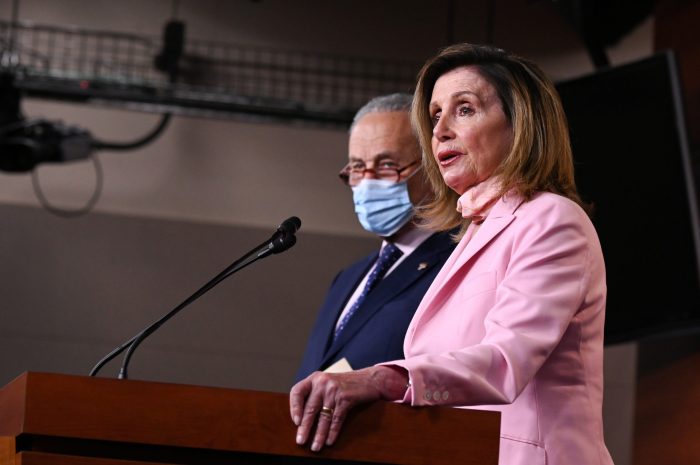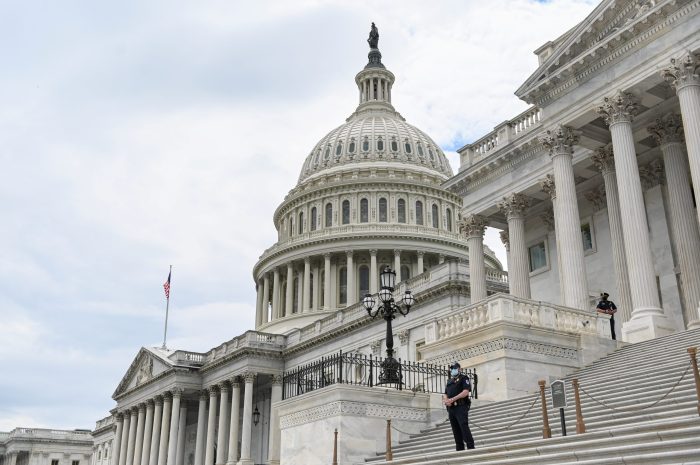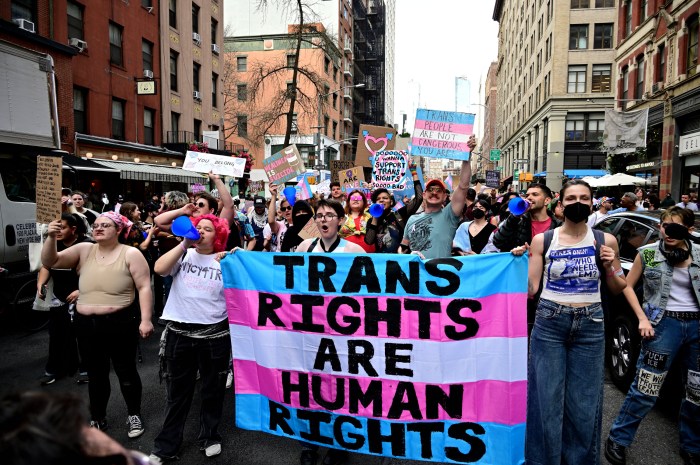By Susan Cornwell and David Morgan, Reuters
Senate Majority Leader Mitch McConnell on Tuesday said Congress should pass a U.S. coronavirus relief package without either the business liability protections that Republicans want or the aid to state and local governments that is a Democratic priority.
The Republican’s proposal was immediately rejected by the Senate’s Democratic leader, Chuck Schumer, who called it an attempt to “sabotage” bipartisan talks on coronavirus relief.
The exchange appeared to leave the leaders in a continued stalemate, despite the fact that both parties are under mounting pressure to deliver a fresh infusion of aid to families and businesses reeling from a pandemic that has killed over 283,000 people in the United States and thrown millions out of work.
“What I recommend is we set aside liability and set aside state and local, and pass those things that we can agree on, knowing full well we’ll be back at this after the first of the year,” McConnell told reporters. “Why don’t we set aside the two obviously most contentious issues?”
“Leaving here (for the year) without a COVID relief package cannot happen,” the Republican said.
Schumer, speaking about an hour later, said ongoing bipartisan negotiations were the best way forward for reaching a deal. These talks are centered around a $908 billion framework that bipartisan lawmakers from both the House and Senate endorsed last week.
“Leader McConnell has refused to be part of the bipartisan negotiations and now he’s sabotaging good-faith bipartisan negotiations because his partisan ideological effort is not getting a good reception,” Schumer said.
The Democrat said scrapping fresh aid to state and local governments would put at risk the jobs of police, firefighters and other frontline public workers battling the COVID-19 pandemic.
There was no immediate response to McConnell’s idea from House Speaker Nancy Pelosi, also a Democrat.
A group of emergency aid programs implemented in response to the pandemic, including additional unemployment benefits and a moratorium on renter evictions, is set to expire at the end of December.
Lawmakers enacted $3 trillion in COVID-19 aid earlier this year but have not been able to agree on fresh relief since April.
For McConnell to suggest abandoning the liability provisions, even temporarily, marked a significant departure for him, as he has spent much of the year talking about how necessary such protections are for businesses, universities and other organizations. He did this again on Tuesday, indicating he had not given up on the idea.
Aid to state and local governments is a top Democratic priority for the next round of COVID-19 relief, but is opposed by many Republicans, who say they fear it will be used by those governments to plug non-pandemic-related holes in their budgets.
Among measures McConnell said lawmakers tend to agree on were aid to small businesses, vaccine delivery and assistance to healthcare workers.
President-elect Joe Biden, a Democrat, said Tuesday Congress should immediately fund vaccine distribution.
Speaking in Wilmington, Delaware, Biden said a review of the Trump administration’s vaccine distribution plans indicated that “Without urgent action by this Congress, this month to put sufficient resources in the vaccine distribution and manufacturing … there’s a real chance, that after an early round of vaccinations, the effort will slow and stall.”Pelosi and McConnell have said they hope to attach long-awaited COVID-19 relief to a broad $1.4 trillion spending bill, known as an omnibus, that lawmakers are also trying to pass this month. Failure to pass the spending legislation could lead to a partial government shutdown.
Earlier Tuesday, Pelosi said she supported including another round of $1,200 direct payments for Americans in the next package of coronavirus relief. Schumer said he would also back them.
McConnell has been pushing a smaller, $500 billion measure and has said Trump would sign that.



